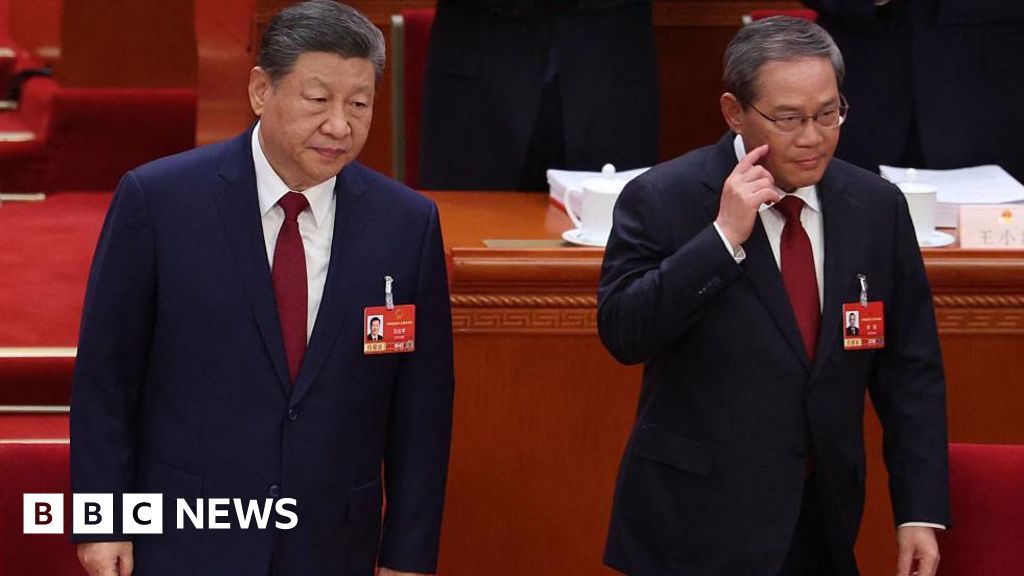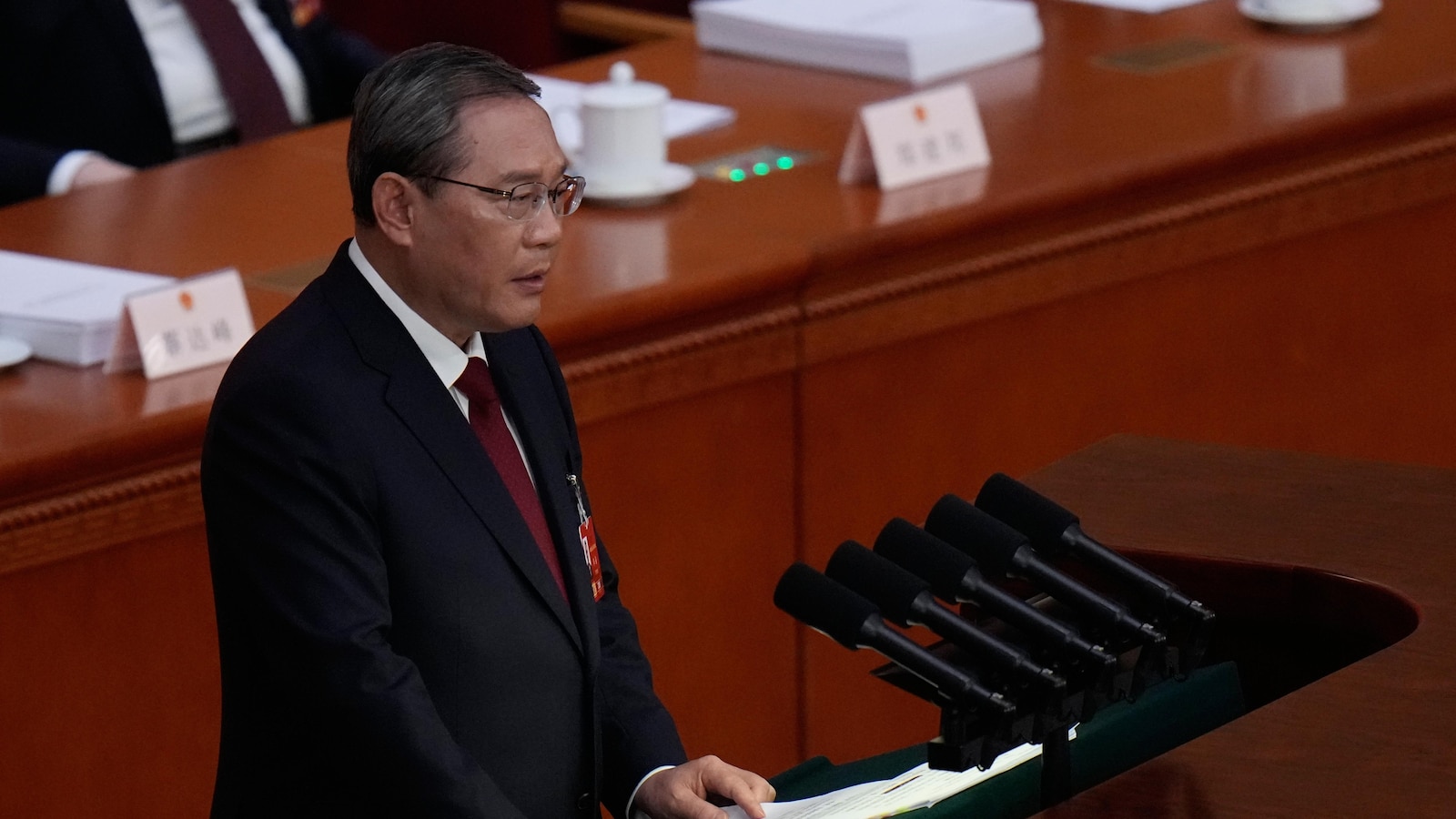ARTICLE AD BOX
Senate Republicans on Tuesday largely defended President Trump’s authority to temporarily freeze disbursements of federal funding for a variety of grants and other assistance programs, but said they still had some questions.
GOP senators said they wanted to hear from the White House Office of Management and Budget (OMB) about how the administration plans to implement the funding freeze and the programs it would impact, as well as what will happen after the comprehensive review of financial assistance is complete.
“There’s all kinds of scenarios when you talk about this large of a number of programs and the effect,” said Sen. Kevin Cramer, North Dakota Republican.
Mr. Cramer, speaking with reporters ahead of Senate Republicans’ weekly conference lunch meeting, said he did not think any of his colleagues were in panic mode “just yet,” but that they had a lot of questions.
Those questions percolated during the lunch as senators sought clarification on which programs would be impacted by the funding freeze. Late in the day, a federal judge temporarily blocked the freeze from taking effect.
Senate GOP leaders read out a statement from the White House affirming that Medicaid was not subject to the pause, amid an unexplained outage of portals that process payments for the massive government health insurance program.
Sen. Josh Hawley, Missouri Republican, said senators during the lunch also received a two-page document from OMB providing answers to some of the questions they’d been receiving.
The Washington Times obtained a copy of the document, which said “any program that provides direct benefits to individuals is not subject to the pause.”
The OMB document said the only programs affected are those that fall under executive orders President Trump has issued since taking office, including actions related to securing the border, unleashing American energy, ending diversity, equity and inclusion programs, and reevaluating foreign aid.
Mr. Hawley said the breadth of the funding freeze becomes “substantially narrower every time they give us more details on it.”
But some senators said they still worried the pause is “far too sweeping,” as Senate Appropriations Chair Susan Collins put it.
“I appreciate that the administration did exempt Medicare, Medicaid, Social Security, but I’m still concerned about the impact,” the Maine Republican said. “I’m hearing from nonprofit organizations in Maine, who were expecting funding, and all of a sudden, it’s been disrupted.”
SEE ALSO: House Democrats plan ‘three-pronged counteroffensive’ against Trump’s assistance freeze
Sen. Shelley Moore Capito, a West Virginia Republican appropriator, said she received calls from West Virginia nonprofits, educational institutions and other constituent groups asking questions about the freeze.
Mr. Trump “has the legal authority to figure out where the money’s gone and where it was obligated before he came into office, but I think it will be helpful for some clarification,” she said.
Senate Budget Chairman Lindsey Graham, South Carolina Republican, said he doesn’t mind the administration thoroughly examining federal spending on grants, given that they are discretionary, but he wants to understand their metrics and timetable for the review.
“I’d like to know what the game plan is here, because some agencies, like the centers that help abused children, they rely on their grant money to make their budget,” he said.
The OMB document provided limited guidance for senators looking for answers. It said funds for small businesses, farmers, Pell grants, Head Start, rental assistance and other similar programs will not be paused, but the freeze would apply to funding for “nongovernmental organizations that undermine the national interest.”
Senate Majority Leader John Thune, South Dakota Republican, defended the freeze and said the administration will be providing additional clarity on which programs will be impacted.
“This is not unusual for an administration to pause funding and take a hard look and scrub of how these programs, how they’re being spent and how they interact with a lot of the executive orders the president signed,” he said. “And I think that’s the main criteria they’re using.”
Senate Foreign Relations Chairman James Risch, Idaho Republican, said a benefit of the funding pause — Mr. Trump previously halted disbursements of foreign aid on his first day in office — is that executive agencies are showing more interest in cooperating with Congress.
“Now that the agencies realize their programs are on the chopping block, they’re running out of their cubby holes ‘en masse,’ showing us information that we’ve been trying to get,” he said.
Sen. Jerry Moran, a Kansas Republican appropriator, said the pause appears to be legal but his understanding of the law is that the administration has to expend the funds Congress appropriated by the end of the fiscal year.
OMB said the paused funds are not considered an impoundment under the Impoundment Control Act, a law that limits the president’s ability to refuse to spend money Congress appropriated.
“Temporary pauses are a necessary part of program implementation that have been ordered by past presidents to ensure that programs are being executed and funds spent in accordance with a new president’s policies and do not constitute impoundments,” the OMB document said.
Republicans mostly refused to speculate about what would happen if Mr. Trump does try to impound some funding after reviewing programs subject to the pause.
Mr. Cramer, however, said he expected legal challenges, both to the freeze and any potential impoundments.
“We’ll see how quickly courts weigh in,” he said. “In the case of some of these grant programs and whatnot, there are obviously a lot of potential litigants, a lot of plaintiffs. It’s harder for Congress, but even Congress could, if they chose to, challenge it on the basis of appropriations.”
Sen. John Kennedy, a Louisiana Republican appropriator, said he views the pause as helpful to identifying spending cuts Republicans will need to make during the upcoming bipartisan government funding process and their party-line budget reconciliation bill.
“It’s all temporary. Every modern corporation that I’m aware of knows how to downsize and save money, as they often have to do,” he said. “And it’s the federal government’s turn.”
• Kerry Picket contributed to this report.

 1 year ago
341
1 year ago
341








 English (US) ·
English (US) ·